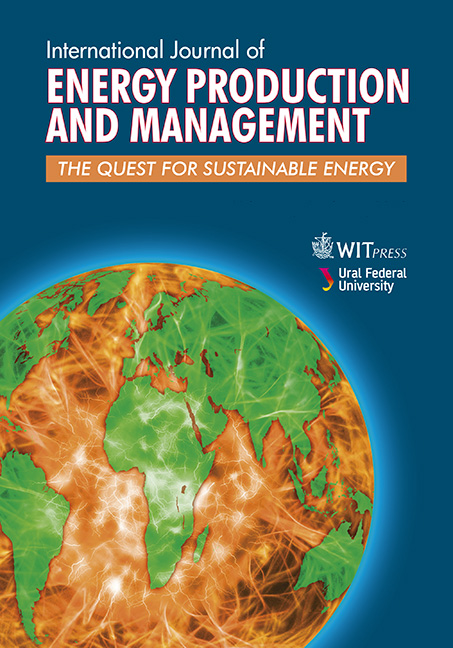Exploring the integration of the power to gas technologies and the sustainable transport
Price
Free (open access)
Volume
Volume 3 (2018), Issue 1
Pages
8
Page Range
1 - 9
Paper DOI
10.2495/EQ-V3-N1-1-9
Copyright
WIT Press
Author(s)
E. LLERA, L. M. ROMEO, M. BAILERA & J. L. OSORIO
Abstract
The de-carbonization of the transport sector is a particularly complex challenge as greenhouse gases are delocalized and diffused. Therefore, the problem has to be tackled from the source of the emissions, and efforts in the scientific and technological field must seek out new energy vectors of high density, neutral in CO2 and based on renewable energy that meet the sector demands and requisites. This could be the case of the synthetic natural gas which can be produced through the Power to Gas process (PtG). This process, originally developed by the German institutes ZSW and IWES, converts electricity into synthetic natural gas (SNG) via the methanation of CO2 together with H2 from water electrolysis. The energy content of the produced methane comes from the primary source for power generation (optimally renewable electricity) and it is possible to produce a CO2 neutral fuel by capturing the carbon emissions from an existing source. In addition, the PtG process can be seen as a new concept of renewable energy and CO2 hybrid storage. This paper identifies the possibilities that the Power to Gas technology offers for the production of sustainable methane and the existing potential for the symbiosis of industrial sectors through optimization of their waste streams of matter and energy. In particular power and transport sectors are considered and the outline of a small facility for the generation of synthetic natural gas from renewable electricity and its consumption in the vehicles of a road freight company is presented as a case study. Not only the technical feasibility but the economic viability of the process and the environmental improvements resulting from the use of a renewable fuel free of CO2 emissions in terms of carbon footprint are evaluated.
Keywords
alternative fuels, carbon capture, energy storage, Power-to-gas, synthetic natural gas.




